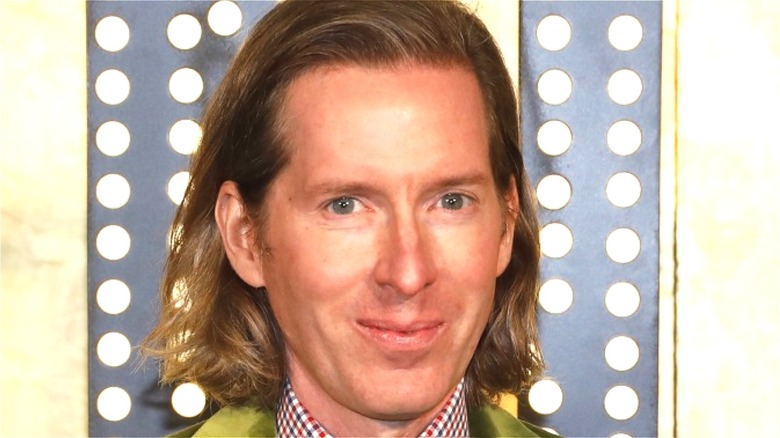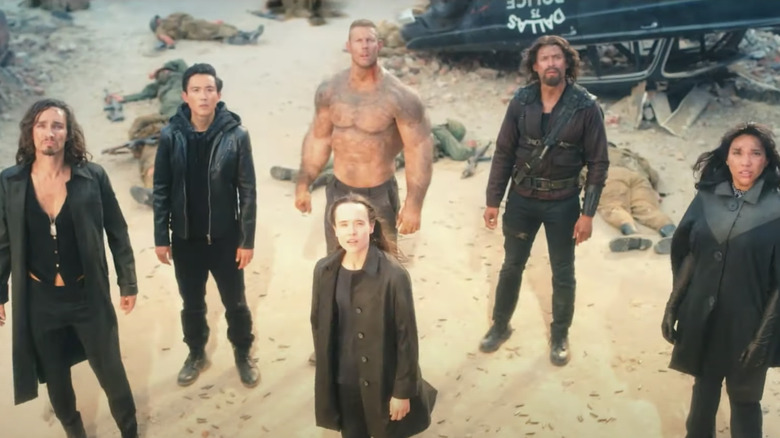The Surprising Way Wes Anderson Influenced The Umbrella Academy
"The Umbrella Academy" isn't like most other superhero or genre TV shows that are on the air right now. Based on Gerard Way and Gabriel Bá's comic book series of the same name, the Netflix show focuses on a group of children who were all adopted by the same billionaire and raised by him to be superheroes.
While that might not sound like the most inventive or genre-defying premise for a superhero show, what truly separates "The Umbrella Academy" from other comic book adaptations is both its emphasis on the dysfunctional nature of its core "family" and its unique visual style. The latter element is evident in the series' retro sci-fi aesthetic and comic book-inspired cinematography, which has helped visually separate it from all the other superhero movies and TV shows that are being released nowadays.
That said, as appealing as "The Umbrella Academy" is to look at, it's the relationships between its central group of characters that imbues the series with its heart and gives it a strong emotional foundation. Taking that into account, fans of both the Netflix show and the comic book that inspired it may be surprised to learn the influence that one acclaimed American filmmaker had on the family at the center of "The Umbrella Academy."
The Hargreeves were influenced by Wes Anderson's dysfunctional families
While speaking with Alternative Press in 2020 about the Netflix adaptation of "The Umbrella Academy," showrunner and executive producer Steve Blackman said that his take on the series' central family was heavily influenced by the work of writer-director Wes Anderson. "I was inspired by Wes Anderson and how he creates dysfunctional family shows," Blackman said. "I wanted to play into that with these characters. Their relationships were very real and very grounded but very faulty. They're trying so hard to get it right, but they're struggling. They had a bad relationship with their dad."
"We're all familiar with dysfunctionality. And that's what [the Hargreeves family] are fighting against," Blackman added. The "Umbrella Academy" showrunner went on to say that he'd hoped to use the Hargreeves' story to not only subvert but also redefine viewers' ideas about who can or cannot be considered superheroes. "I wanted this show to feel different," Blackman said, noting that he wanted to prove how "dysfunctional people can be heroes. And that heroes can come in different forms. And sometimes, they fail spectacularly."
As Blackman notes, the show's characters all struggle much more intensely with their superhero duties than the characters in most comic book movies and TV shows do. Their struggles also go back to their childhoods and respective pasts, so it makes sense that Blackman might look to Wes Anderson's films for inspiration.
All throughout his career, Anderson has created films about dysfunctional, fractured families, including "The Royal Tenenbaums," "Moonrise Kingdom," "The Darjeeling Limited," "Fantastic Mr. Fox," and even "The Life Aquatic with Steve Zissou." Taking that into account, it's not hard to see why Anderson's filmography ended up influencing a show like "The Umbrella Academy."

